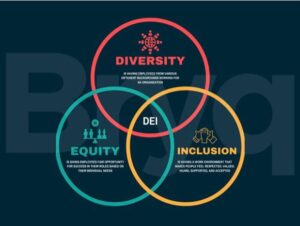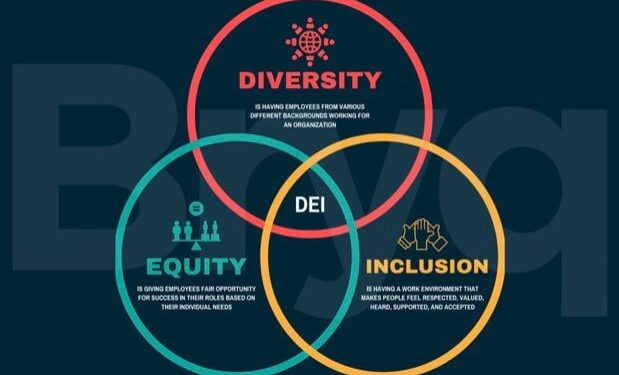In an era where diversity, equality, and inclusion (DEI) are major goals of the world governing body, the United Nations (UN), which aims at fostering a culture, environment, and global community where all individuals feel free, valued, respected, and have equal opportunities regardless of background, making the pursuit of representation more visible than ever. Companies and enterprises proudly showcase their diverse requirement for hiring, films are celebrated for their “firsts,” and political parties highlight candidates from a spectrum of backgrounds. On the surface, this looks like progress. But too often, this visible diversity masks a more subtle reality of Tokenism being practiced.

What is Tokenism?
Tokenism, according to the Oxford Learner’s Dictionary, is the practice of doing something only to appear inclusive or to comply with the law, but without sincere commitment or effort. A term coined in the 1960s by psychologist Rosabeth Moss Kanter, but gaining prominence in the context of the Civil Rights Movement, where leaders like Martin Luther King Jr and Malcolm X criticized the practice of giving superficial representation to marginalized groups without addressing systemic inequalities. Tokenism emerged as a response to affirmative action policies, with organizations using token representatives as mere symbols of diversity without dealing with underlying issues. Tokenism is the process by which people from minority groups are brought in to give the appearance of inclusion to prevent criticism. But Tokenism, in my words, is an empty gesture of inclusion.
Tokenism often falls short of genuine diversity and inclusion, and can actually serve to perpetuate stereotypes and reinforce biases, hindering genuine progress towards inclusivity. These token representatives often face increased scrutiny and pressure to represent their entire community, experiencing isolation and limited space and opportunities for growth. In our current day and age, tokenism is as vibrant as it has ever been in our world. There is tokenism in the media, at school, and in the workplace.
Difference between genuine diversity and tokenism.
The distinction between genuine diversity and token representation lies in the depth of inclusion; Genuine diversity means more than just having visible differences, but also embracing unique experiences, perspectives, and backgrounds to ensure that individuals from underrepresented groups are truly included, valued, and have a sense of belonging and opportunity within an organization or society. On the contrary, tokenism relies on symbolic gestures, often disregarding the valuable contributions and unique voices of the underrepresented in society.

Tokenism In Media
In the media space, tokenism frequently appears as the inclusion of a single representative from a minority group to demonstrate diversity. This is common in advertising, TV shows, and movies. By doing this, media outlets may try to appear diverse, but they are actually avoiding genuine representation and failing to show the true diversity within these communities. They represent PWDs by taking coverage of them as people who are supposed to be spoken about from a distance without letting them speak for themselves.
Tokenism at the workplace
Tokenism in the workplace can take many forms, such as symbolic representations, diversity quotas, limited career growth opportunities, lack of inclusivity, token participation, and unvoiced concerns faced by tokenized individuals. A common scenario in professional settings is token hires, where a company hires individuals from underrepresented groups solely to demonstrate diversity without genuinely valuing their contributions. Token hires often face added pressure to represent their entire community, making it difficult for them to be seen as individuals with unique skills and qualifications. Token participation in decision-making is another prevalent aspect of tokenism. In such cases, organizations might include a single representative from a minority group in discussions or committees to give an illusion of inclusion, but their perspectives may not be genuinely valued or considered in meaningful ways. Tokenism in the workplace undermines the genuine efforts to create a diverse and inclusive workforce.
Tokenism in schools
Within the context of schools, students of all demographics can experience tokenization in a variety of ways. It manifests in the classroom through practices like singling out minority students to speak for their entire group, adding diverse curriculum without thoughtful integration, or celebrating heritage months in superficial ways. This practice often benefits the institution by fulfilling diversity quotas but fails to benefit the student. Tokenism is observable in educational settings, where schools may enroll a limited number of students from disadvantaged backgrounds to showcase diversity.
Mental Health Effects of Tokenism
Tokenism may appear as a step towards inclusion, but its effects on people experiencing it can be harmful. Tokenism can take a toll on mental health, leaving those affected isolated, undervalued, objectified, alienated, and exploited. The pressure to represent everyone can weigh heavily on their shoulder, leading to the constant fear of not meeting the expectations that people have of them.
Instead of celebrating their achievements and qualifications, tokenized individuals may have their achievements attributed to their background instead of their skills.
The constant undermining of their worth can have an impact on their self-esteem and confidence. Tokens often experience chronic stress, increased feelings of inadequacy (imposter syndrome), and a lack of belonging, which can lead to a severe emotional toll. This form of discrimination undermines self-worth and hinders both personal and professional growth. As tokenism persists, the toll on mental well-being becomes increasingly apparent. The sense of being unheard and undervalued can leave tokenized individuals questioning their place in the workplace and society at large.
Ways to minimize Tokenism in society.
Tokenism is not inevitable, and there are steps that can be taken to avoid and minimize its existence in society. It is important to remember that the main difference between tokenism and representation lies in the purpose and execution. While representation seeks to promote inclusion and diversity, tokenism only seeks to achieve an appearance of representation.
- Workplace Solutions
- Create a culture of inclusiveness.
Embracing an inclusive work culture that celebrates diversity in its entirety is vital for businesses seeking to thrive in the modern world. This means going beyond token gestures and actively promoting open dialogue, where employees feel free to express their unique perspectives without fear of judgment. Respecting and appreciating different viewpoints fosters a collaborative atmosphere that drives creativity and innovation.
- Promote a reporting system;
Protect your employees from harmful and discriminatory behaviors by having a grievance reporting system. To avoid bias or conflict of interest, you can also use a third-party vendor that provides free consulting services for employees on different matters.
- Incorporate inclusive values into training.
Offering regular diversity and inclusion training for all employees helps to raise awareness of tokenism and its negative impact. Embedding principles of diversity, equity, and inclusion into employee education, covering topics like unconscious bias and cultural competency. The training should focus on challenging unconscious biases that may unintentionally perpetuate tokenism and exclusion and encourage employees to actively contribute to an inclusive workplace.

- Media Solutions.
- Authentic Representation;
Avoid tokenistic casting or storytelling by portraying characters from diverse backgrounds in meaningful roles, ensuring they are not simply fulfilling a “diversity quota” that perpetuates prejudice and unfair stereotypes. This helps to prevent stigmatization that makes people feel like they are represented because of their race, gender, or sexual orientation as opposed to their abilities.
- Diverse Storytellers;
Empower and promote diverse writers, directors, and producers to tell stories that reflect a wide range of experiences and perspectives authentically. This helps to prevent harmful stereotypes and biases that can be harmful to people’s self-esteem and confidence.
- Educational Campaigns;
Use media platforms to educate the public on the dangers of tokenism and the importance of genuine diversity, inclusion, and equity. This helps to promote inclusion and diversity and do away with biases and stereotypes.
- School Solutions
- Inclusive curricula;
Develop and integrate curricula that reflect diverse histories, cultures, and perspectives, moving beyond a singular narrative to a more inclusive and accurate understanding of the world. Re-evaluating the purpose of inclusion policies and guidelines is an important step, and looking to value diversity for the sake of students, rather than the school’s reputation or image, should be of high priority.
- Diverse Staff;
Prioritize hiring and retaining diverse educators and staff members at all levels, from the classroom to administrative positions.
- Anti-Bias Training for Staff;
Provide ongoing unconscious bias and inclusion training for all school staff, including teachers, administrators, and counselors, to foster a more welcoming environment.
Conclusion
In a nutshell, tokenism is diversity without inclusion, a major tool in the retrogression of society. In an effort to create a more diverse society, society may sometimes fall on tokenism as a shortcut. On the other hand, a more diverse and inclusive society could lead to the growth of the community and help to promote peace. It creates a supportive, transparent environment that promotes inclusion and that will benefit everyone.
Source: Clara Akorful










Discussion about this post